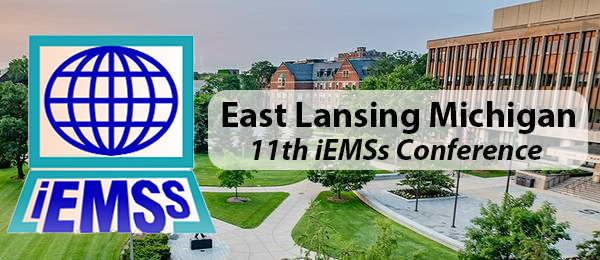Keywords
MANGA; object oriented programming; robustness-analysis; sustainable coding
Start Date
6-7-2022 9:00 AM
End Date
6-7-2022 9:20 AM
Abstract
Model reusability and reliable benchmarking strategies are of major concern in ecological modelling. Here, the object-oriented programming (OOP) paradigm provides new pathways. We demonstrate possible advantages of OOP using the process- and individual based mangrove model MANGA (mangrove groundwater salinity feedback model). MANGA is modular and comprises various modelling concepts to simulate the growth of (mangrove) trees in response to environmental conditions, competition or facilitation among neighboring trees. MANGA provides several tested and well documented building blocks among which a modeler can select the most suitable for a given research question. For example, below-ground competition can be described using the so called field-of-neighborhood defining the zones of trees’ water uptake or by a complex groundwater model. On the basis of defined interfaces, those belowground competition building blocks can be combined with a specific tree growth model, e.g. BETTINA. The selected tree growth module does not need to be adapted as it receives a below-ground competition factor in a defined format to determine tree growth. Following the OOP philosophy, modules to be combined or extended and new, cascading building blocks can be implemented. This modular toolbox approach provides a wide range of possible combinations of concepts rather than one specific description. However, the described flexibility has downsides. Having complex modules at hand, constructed models might become very complex. The resulting descriptions must remain reliable. Providing specific benchmarks for each module is thus of great importance. We demonstrate the utilization of a modular structure in assessing the robustness and the effect of interactions of concepts by incremental reduction of model complexity. Understanding the behavior and the interaction of building-blocks is crucial for process-based theory development with the help of numerical models.
A stepwise reduction of model complexity and block-specific benchmarks are the key to effective and reliable testing of complex simulation models that consist of conceptually differing building blocks
Model reusability and reliable benchmarking strategies are of major concern in ecological modelling. Here, the object-oriented programming (OOP) paradigm provides new pathways. We demonstrate possible advantages of OOP using the process- and individual based mangrove model MANGA (mangrove groundwater salinity feedback model). MANGA is modular and comprises various modelling concepts to simulate the growth of (mangrove) trees in response to environmental conditions, competition or facilitation among neighboring trees. MANGA provides several tested and well documented building blocks among which a modeler can select the most suitable for a given research question. For example, below-ground competition can be described using the so called field-of-neighborhood defining the zones of trees’ water uptake or by a complex groundwater model. On the basis of defined interfaces, those belowground competition building blocks can be combined with a specific tree growth model, e.g. BETTINA. The selected tree growth module does not need to be adapted as it receives a below-ground competition factor in a defined format to determine tree growth. Following the OOP philosophy, modules to be combined or extended and new, cascading building blocks can be implemented. This modular toolbox approach provides a wide range of possible combinations of concepts rather than one specific description. However, the described flexibility has downsides. Having complex modules at hand, constructed models might become very complex. The resulting descriptions must remain reliable. Providing specific benchmarks for each module is thus of great importance. We demonstrate the utilization of a modular structure in assessing the robustness and the effect of interactions of concepts by incremental reduction of model complexity. Understanding the behavior and the interaction of building-blocks is crucial for process-based theory development with the help of numerical models.



Stream and Session
false